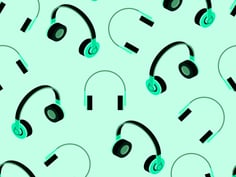In the past few years, I’ve read a lot of articles and visited many web-sites to learn more about what drives academic performance and to identify mutually beneficial...
Podcasts for Students Series: Introduction
 In this series of blog posts, we’ll explore how podcasts can help students improve their academic performance and prepare for successful careers. We all know effectively managing your time is a key component of performing well at work and in school, and podcasts are an excellent way to learn new things while you are exercising, walking to class, or on the bus. Podcasts obviously cover a wide range of topics. Apple’s “categories” of podcasts include: arts, business, comedy, education, games, government, health, kids and family, music, news and politics, religion, science and medicine, society and culture, sports, technology, and TV/film.
In this series of blog posts, we’ll explore how podcasts can help students improve their academic performance and prepare for successful careers. We all know effectively managing your time is a key component of performing well at work and in school, and podcasts are an excellent way to learn new things while you are exercising, walking to class, or on the bus. Podcasts obviously cover a wide range of topics. Apple’s “categories” of podcasts include: arts, business, comedy, education, games, government, health, kids and family, music, news and politics, religion, science and medicine, society and culture, sports, technology, and TV/film.
If you’re a student trying to identify ways to perform better in high school, college, or graduate school, you’ll probably find most relevant podcasts in education, or maybe health or even business.
Here are a few different “types” of podcasts I’ve identified that could be particularly useful to students.
Podcasts about productivity, health, and wellness provide foundational ideas for performing at a high level.
These types of podcasts might provide you with ideas about time management, note-taking, having more energy through better nutrition, the benefits of mindfulness, setting goals, etc. A good example of to this category for me would be The Getting Things Done Podcast by David Allen. I read David Allen’s book by the same name, Getting Things Done, about a decade ago. It explores how to be more productive and less stressed through better note taking, organization, and use of to-do lists. I have been a die-hard believer in the importance of getting tasks out of your head, into a note-book, and onto a to-do list ever since. Allen and a co-author, Mark Wallace, have recently published a book that covers similar ideas and concepts aimed at teenagers (i.e., students) called Getting Things Done for Teens.
Podcasts about specific topics can help you reach specific academic goals.
You’ll find lots of podcasts about specific issues facing current or future high school, college, or graduate school students. There are podcasts about college admissions strategies and the application process, preparing for standardized tests, and more. With these types of podcasts, you are obviously learning about specific situations in which you may currently or will soon find yourself. An example of this type of podcast would be The College Essay Guy Podcast, described as a practical guide to college admissions.
Podcasts about history, politics, economics, science, medicine, etc. can help motivate you and make you more curious and interested in different types of courses.
Here, the idea would not necessarily be that you are going to study for your history of Rome final by listening to the History of Rome podcast by Mike Duncan (although you probably could, as it’s a somewhat thorough but also entertaining exploration of the history of Rome). Instead, this category of podcasts might pique your interest or curiosity and give you more context about a topic you are learning about in class. Simply by having more general background knowledge about a topic and having listened to it talked about in an entertaining way instead of a typical academic way, you may find yourself more interested and thus more likely to perform well in the class.
For example, Malcom Gladwell is the author of several very popular books (including one, Outliers, that explains success as a function of a person’s environment along with personal motivation, drive, and effort that might be particularly interesting to students. It was in this book that he popularized the idea that it takes 10,000 hours of deliberate practice to become an expert at something). He has a podcast called Revisionist History that explores a variety of historical events from a different, often very interesting and unexpected angle. After listening to any one of these episodes it’s hard to not be at least a little more interested in the topic covered than you were beforehand.
Here’s how to “use” podcasts.
Podcasts are much less useful if you don’t act on or even remember what you are listening to. Podcasts about productivity tend to be chock full of useful ideas to try that will help you become more organized and use your time more efficiently. But you must remember those ideas if you plan on testing them out.
I recommend taking simple notes during or immediately after each podcast episode. Then, make sure you somehow transfer the ideas onto a to-do list of some sort. The note-taking and to-do list building tool that I use most often is called Evernote, but simple pen and paper or any number of competitors to Evernote can help you capture and organize information.
In our next article in this podcasts series, we’ll explore podcasts about productivity in more detail.
